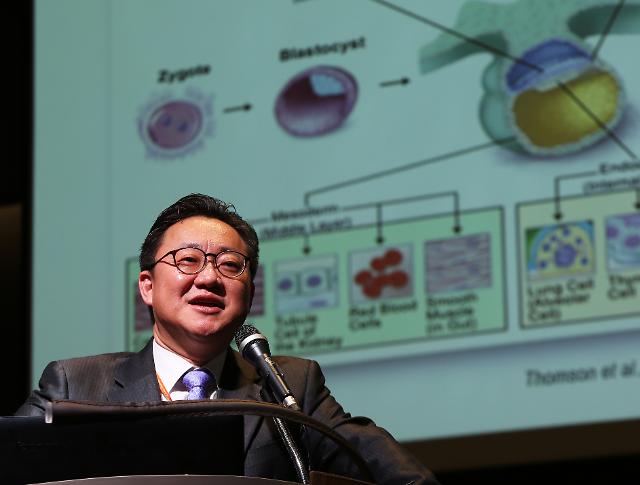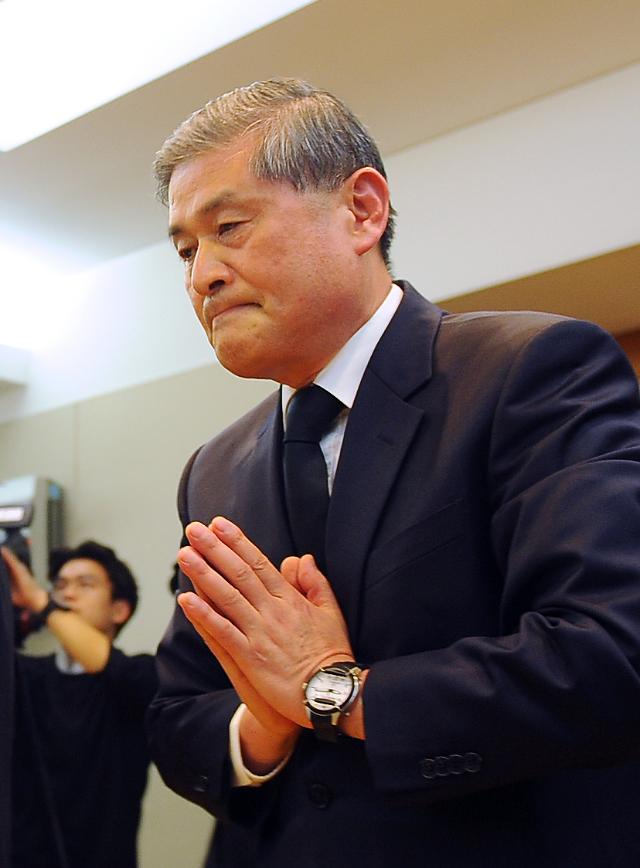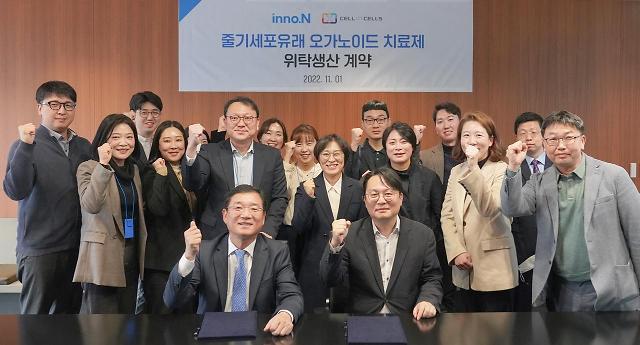
[Yonhap News Photo]
South Korea has lifted a strict ban on the use of human eggs to extract stem cells from cloned human embryos, a state body said Tuesday, years after a scandal involving disgraced cloning expert Hwang Woo-suk stopped such a research.
Scientists will be allowed to conduct a five-year research on using 600 human eggs to clone human embryos and extract stem cells for treatment of incurable diseases such as cerebral apoplexy and optic nerve damage, said the National Bioethics Committee controlled by President Park Geun-hye.
The research will be led by CHA University's stem cell institute which has carried out independent experiments but was barred from using human eggs in 2009. In 2014, CHA's institute claimed to have grown stem cells from adult cells using cloning techniques in a breakthrough experiment that could have significant medical uses.
South Korea has tightly regulated the use of human eggs after Hwang, a former Seoul National University veterinary professor, was barred from continuing research with human cells. In 2004 and 2005, he and his colleagues claimed to have extracted stem cells from what they characterized as the world's first cloned human embryos. But his work was found to have been based on fabricated data.
Despite the disgrace, Hwang has continued working with animal cloning techniques as chief technology officer for the Sooam Biotech Research Foundation. Before the scandal broke, his team produced the world's first cloned dog, nicknamed Snuppy, and that claim has stood up to scrutiny.
Hwang, once touted as a national hero, was charged with fraud and embezzlement of state funds, and the Supreme Court in 2014 sentenced him to 18 months in prison, suspended for two years, holding him guilty of illegally pocketing state research funds and illegally buying human eggs. He was also dismissed from his school.
Hwang has filed a lawsuit to challenge the school's decision, but the top court ruled in December last year that his dismissal was justifiable.
South Korean scientists have urged the government to ease regulations on human embryonic stem cell research, citing significant progress in the research by foreign rivals. There have been concerns about ethical questions over human cloning.
In response, the state committee said CHA's scientists would be put under strict monitoring and surveillance to see if they would violate ethics and rules.
Aju News Lim Chang-won = cwlim34@ajunews.com
Copyright ⓒ Aju Press All rights reserved.





View more comments